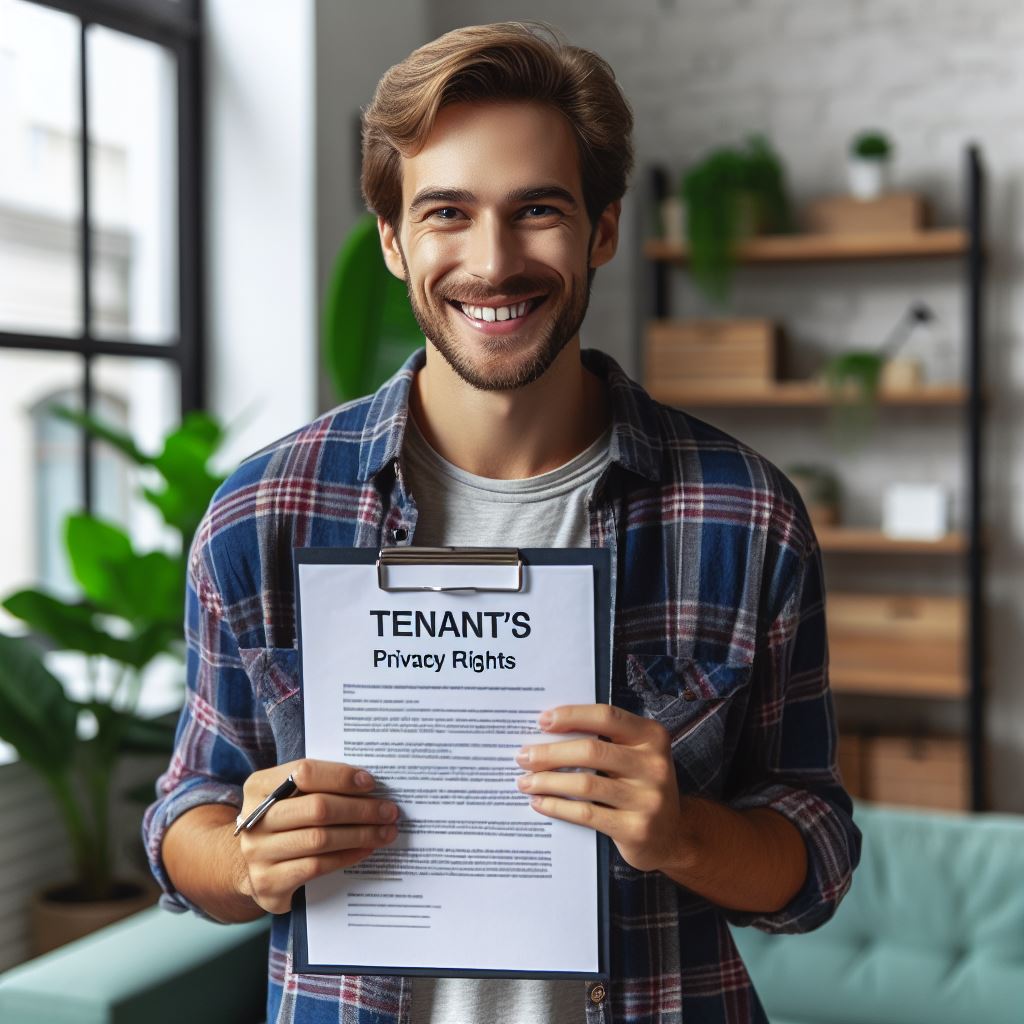Introduction
Repair responsibilities for landlords are a crucial aspect of property management. Understanding these responsibilities is vital to avoid legal disputes and ensure tenant satisfaction.
Landlords must be aware of their obligations to maintain a safe and habitable living environment for their tenants.
Failure to address repair issues promptly can result in unhappy tenants and potential legal consequences.
Comprehending repair responsibilities allows landlords to fulfill their duty of providing quality housing.
By promptly addressing repairs, landlords can ensure tenant satisfaction and preserve their property’s value.
Being proactive in maintenance prevents minor issues from escalating into costly problems.
Moreover, understanding repair obligations helps landlords meet legal requirements, comply with health and safety regulations, and avoid potential legal disputes.
Timely repairs not only uphold the landlord’s legal obligations but also contribute to tenant satisfaction.
Promptly addressing maintenance requests shows tenants that their concerns are taken seriously.
This leads to a positive tenant-landlord relationship, increased tenant retention, and enhanced rental property reputation.
Tenants are more likely to renew their lease and recommend the property to others when repair issues are handled promptly and efficiently.
Understanding repair responsibilities safeguards landlords from legal issues. Landlords are legally obligated to maintain the property’s structure, heating, plumbing, and electrical systems.
Failure to fulfill these responsibilities can result in legal action from tenants, potential fines, or even property condemnation.
Landlords must familiarize themselves with local housing codes and regulations to ensure compliance and protect themselves from costly legal battles.
Navigating repair responsibilities is of utmost importance for landlords.
By comprehending these obligations, landlords can maintain tenant satisfaction, avoid legal disputes, and uphold their duty of providing safe and habitable living conditions.
Adhering to repair responsibilities not only benefits tenants but also safeguards the landlord’s investment and reputation as a responsible property manager.
Responsibilities before Renting
Conduct a Thorough Inspection
Before renting out a property, it is crucial to conduct a comprehensive inspection to ensure its condition.
Inspect every corner of the property, checking for any damages, leaks, or potential issues.
Look for possible safety hazards such as faulty electrical wirings or plumbing problems.
Identify any existing damages caused by previous tenants and document them meticulously.
This thorough inspection will help landlords determine the necessary repairs before renting out the property.
Document the Property’s Condition
It is essential to document the condition of the property through photographs or written reports.
Take clear and detailed photographs of each area, highlighting any existing damages or issues.
If photographs are not possible, written reports should describe the property’s condition accurately.
Documentation serves as evidence in case disputes arise regarding damages caused by the tenants.
These records can protect landlords and ensure they are not held responsible for pre-existing damages.
Address Needed Repairs
Prioritize addressing any necessary repairs before tenants move into the property.
Repair any damages found during the inspection that could affect the safety or livability of the property.
Fix plumbing issues, electrical problems, broken appliances, or any structural damages promptly.
Ensure that doors, windows, locks, and other security features are functioning correctly.
By addressing needed repairs beforehand, landlords provide a safe and habitable environment for their tenants.
It also demonstrates professionalism and a commitment to maintaining the property at a high standard.
Taking responsibilities seriously before renting out a property is crucial for landlords.
Conducting a thorough inspection allows landlords to identify any damages or safety hazards.
Documenting the property’s condition through photographs or written reports provides evidence and protects landlords from false claims.
Addressing necessary repairs prior to tenants moving in ensures a safe and comfortable living environment for the tenants.
By fulfilling these responsibilities, landlords establish trust and create a positive renting experience for all parties involved.
Read: Tenant Rights: Security Deposit Insights
Routine Maintenance and Small Repairs
As a landlord, ensuring the upkeep of your rental property goes beyond collecting rent checks.
It’s your responsibility to maintain the property’s integrity and address any repairs promptly.
In this section, we’ll delve into the crucial aspects of routine maintenance and small repairs, shedding light on the landlord’s duties and why they matter.
Routine maintenance is the cornerstone of preserving the value and functionality of your rental property.
From servicing HVAC systems to cleaning gutters and replacing filters, these tasks might seem mundane but are paramount for the property’s longevity.
As a landlord, it’s your obligation to conduct regular inspections and schedule maintenance checks to identify any issues early on.
Neglecting routine maintenance can lead to larger, more costly problems down the line, affecting both your property’s value and your tenant’s satisfaction.
Examples of Routine Maintenance Tasks
- Servicing HVAC Systems: Regular inspections and maintenance of heating, ventilation, and air conditioning systems ensure optimal performance and energy efficiency.
- Cleaning Gutters: Clogged gutters can lead to water damage and structural issues. Regular cleaning prevents water from seeping into the property and causing mold or rot.
- Replacing Filters: Whether it’s air filters in HVAC systems or water filters in faucets, regular replacements improve air quality and prevent appliance malfunction.
Importance of Prompt Repairs
Small repairs may seem inconsequential but addressing them promptly can save you from major headaches later on.
A leaky faucet might seem like a minor annoyance, but left unchecked, it can lead to water damage and mold growth.
Likewise, a loose doorknob might seem trivial, but it compromises security and can escalate into a bigger issue if not fixed promptly.
By promptly addressing small repairs, you not only demonstrate your commitment to your tenant’s well-being but also safeguard your investment.
Ignoring minor issues can escalate into costly repairs and potential legal liabilities.
In a nutshell, routine maintenance and prompt repair are non-negotiable responsibilities for landlords.
By staying proactive and addressing issues as they arise, you can ensure a safe, comfortable living environment for your tenants while protecting the value of your property.
Read: Eviction Laws 101: What Landlords Must Know

Major Repairs and Emergencies
As a landlord, navigating repair responsibilities is a crucial aspect of maintaining a healthy landlord-tenant relationship and ensuring the habitability of your rental property.
Among these responsibilities, addressing major repairs and emergencies stands out as imperative for both legal compliance and tenant satisfaction.
Understanding the Difference
Major repairs encompass significant issues that affect the functionality or safety of the rental unit.
These could include plumbing problems like leaks or blockages, electrical issues such as faulty wiring or power outages, or structural concerns like roof damage or foundation issues.
On the other hand, emergencies are sudden, unexpected events that require immediate attention to prevent further damage or harm.
Examples include burst pipes, gas leaks, or broken windows compromising security.
Landlord Obligations
Landlords are legally obligated to maintain their rental properties in a habitable condition, which includes promptly addressing major repairs and emergencies.
This duty ensures that tenants can enjoy a safe and functional living environment.
Ignoring or delaying necessary repairs can lead to further damage, inconvenience for tenants, and potential legal repercussions for the landlord.
Prompt Response is Key
In situations requiring major repairs or dealing with emergencies, time is of the essence.
Landlords must respond promptly to tenant reports of such issues to mitigate any potential hazards or inconvenience.
Delayed action can exacerbate problems, leading to costlier repairs and tenant dissatisfaction.
Therefore, landlords should establish clear communication channels and protocols for reporting and addressing repair needs.
Providing Contact Information
To facilitate quick resolution of emergencies, landlords should provide tenants with readily accessible contact information for reporting urgent issues outside of regular business hours.
This may include a dedicated emergency maintenance hotline or contact details for preferred contractors or property management services equipped to handle urgent repairs.
Therefore, landlords bear the responsibility of promptly addressing major repairs and emergencies to ensure the safety and comfort of their tenants.
By understanding the difference between these issues, fulfilling their obligations, and providing clear communication channels, landlords can effectively navigate repair responsibilities while fostering positive landlord-tenant relationships.
Read: Understanding Your Lease: A Tenant’s Guide
Communication with Tenants
The importance of establishing clear lines of communication with tenants regarding repairs
Establishing clear lines of communication with tenants regarding repairs is of utmost importance.
Encouragement for landlords to provide tenants with multiple channels to report repairs, such as phone, email, or an online platform
Encourage landlords to provide tenants with multiple channels to report repairs, such as phone, email, or an online platform.
Transparency and prompt communication should be maintained throughout the entire repair process.
Effective communication ensures that tenants feel heard and their repair needs are addressed.
By establishing clear communication channels, landlords can promptly respond to repair requests and address them in a timely manner.
Tenants should be provided with detailed information on how to report repairs and the expected timeline for resolution.
Having multiple reporting channels allows tenants to choose the most convenient and accessible method for them.
Landlords should consider implementing an online platform for repair requests, providing a centralized system for efficient communication.
Regularly updating tenants on the status of their repair requests helps build trust and maintain a positive landlord-tenant relationship.
Timely communication allows tenants to plan accordingly and understand any inconveniences that may arise during the repair process.
Responsive communication demonstrates a commitment to tenant satisfaction and a proactive approach to maintenance and repairs.
Encourage tenants to report repairs as soon as they arise to prevent minor issues from escalating into major problems.
When tenants report repairs promptly, landlords can address them before they lead to more significant damage or inconvenience.
Landlords should emphasize to tenants that prompt reporting of repairs not only benefits them but also contributes to the overall upkeep and value of the property.
Providing tenants with a clear understanding of the repair process helps manage expectations and avoid misunderstandings.
The need for prompt and transparent communication throughout the entire repair process
Clearly communicate the steps involved in the repair process, from reporting to assessment, scheduling, and completion.
Notify tenants in advance about any necessary access to their rental unit for repairs and ensure it aligns with local regulations and privacy guidelines.
By keeping tenants informed about the repair timeline, landlords can minimize any disruptions to their daily routine.
During the repair process, providing regular updates on the progress and any unexpected delays is crucial.
Transparency in communication fosters a sense of trust and shows tenants that their concerns are being taken seriously.
If unexpected delays occur, promptly communicate the reasons, revised timelines, and any temporary solutions that can be provided.
Encourage tenants to provide feedback on the repair process and their overall satisfaction to continually improve the landlord-tenant relationship.
Open communication channels allow tenants to voice any concerns or issues that may arise during the repair process.
Addressing tenant concerns promptly demonstrates a commitment to tenant welfare and enhances their overall renting experience.
To conclude, clear and prompt communication with tenants regarding repairs is crucial for maintaining a positive landlord-tenant relationship and ensuring timely resolution of repair issues.
Read: Property Tax Myths: Busted!
Handling Disputes and Legal Considerations
When it comes to rental properties, disputes over repair responsibilities can sometimes rear their heads, creating tension between landlords and tenants.
Understanding how to navigate these disputes and knowing your legal rights and obligations is crucial for maintaining a harmonious landlord-tenant relationship.
Here, we delve into common disputes and offer guidance on handling them effectively.
Identifying Potential Disputes
Disputes often arise when there’s ambiguity surrounding who is responsible for repairs.
While landlords are typically responsible for maintaining the structural integrity of the property and ensuring it meets safety standards, tenants are expected to report any damages promptly and maintain the property in a reasonable condition.
Handling Disagreements
Communication is key. Encourage open dialogue between you and your tenant to address repair issues swiftly.
Document all communications and requests for repairs to avoid misunderstandings later on.
If a disagreement arises, try to resolve it amicably through negotiation or mediation.
Compromise may be necessary to reach a mutually beneficial solution.
Legal Considerations
If informal negotiations fail, understanding the legal framework is essential.
Review your lease agreement to clarify repair responsibilities outlined therein.
Landlord-tenant laws vary by jurisdiction, so familiarize yourself with local regulations governing repair obligations.
Seeking Legal Advice
For complex disputes or if legal action becomes necessary, seek professional legal advice.
A knowledgeable attorney can provide guidance on your rights and responsibilities, assist in drafting legal notices, and represent you in court if the dispute escalates.
Remember, prevention is better than cure. Conduct regular property inspections to identify potential maintenance issues early on.
Proactive maintenance can mitigate disputes and save both parties time and money in the long run.
Overall, handling repair disputes requires patience, communication, and a thorough understanding of legal obligations.
By fostering open communication and seeking legal guidance when needed, landlords can effectively navigate repair responsibilities and maintain positive relationships with their tenants.
Conclusion
Throughout this blog post, we have discussed the importance of landlords navigating repair responsibilities in a proactive manner.
By prioritizing repairs and maintaining open lines of communication with tenants, landlords can create a positive relationship and a well-maintained property.
It is crucial for landlords to understand local laws and lease agreements to effectively navigate repair responsibilities.
Being aware of their obligations and rights will ensure that repairs are carried out in a timely and compliant manner.
In summary, landlords must take repair responsibilities seriously and make it a priority.
Maintaining open communication with tenants and promptly addressing repair issues contributes to tenant satisfaction, lowers potential legal risks, and helps in maintaining the property value in the long run.
By adhering to these key points, landlords can foster a positive environment, retain responsible tenants, and protect their investment by effectively managing repair responsibilities.




